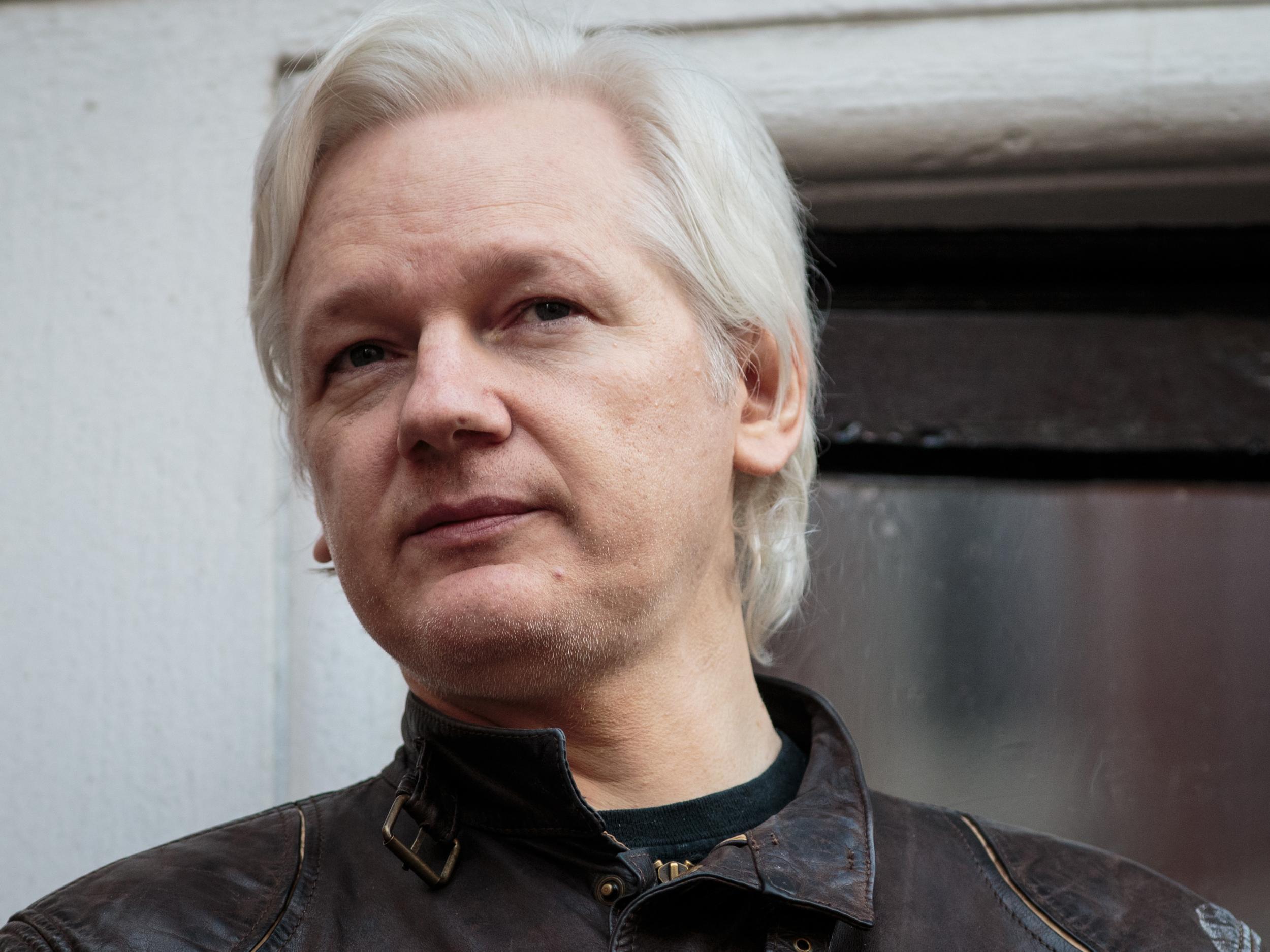Julian Assange: WikiLeaks founder rejects deal allowing him to leave Ecuador embassy in London after six years
Australian free to leave in ‘near liberty,’ says Ecuadorean president

Your support helps us to tell the story
From reproductive rights to climate change to Big Tech, The Independent is on the ground when the story is developing. Whether it's investigating the financials of Elon Musk's pro-Trump PAC or producing our latest documentary, 'The A Word', which shines a light on the American women fighting for reproductive rights, we know how important it is to parse out the facts from the messaging.
At such a critical moment in US history, we need reporters on the ground. Your donation allows us to keep sending journalists to speak to both sides of the story.
The Independent is trusted by Americans across the entire political spectrum. And unlike many other quality news outlets, we choose not to lock Americans out of our reporting and analysis with paywalls. We believe quality journalism should be available to everyone, paid for by those who can afford it.
Your support makes all the difference.Julian Assange’s lawyer has rejected a plan for the WikiLeaks founder to leave the Ecuadorean embassy in London after six years holed up inside the building.
Ecuadorean President Lenin Moreno said there was now a “path” for Mr Assange’s exit following an agreement with the UK government that he would not be extradited to any country with the death penalty.
“The way has been cleared for Mr Assange to take the decision to leave in near liberty,” said Mr Moreno – who has made clear his desire to put an end to the controversial figure’s long residence at the diplomatic mission.
Although he did not fully explain what “near liberty” meant, the Ecuadorean leader said British authorities had guaranteed he would not be sent anywhere where his life would be in danger.
But Mr Assange’s legal team dismissed the deal with the British authorities, claiming it would not give him protection against “persecution” and the possibility of extradition to the US.
“The suggestion that as long as the death penalty is off the table, Mr Assange need not fear persecution is obviously wrong,” his lawyer Barry Pollack told The Telegraph.
“No one should have to face criminal charges for publishing truthful information.
“Since such charges appear to have been brought against Mr Assange in the United States, Ecuador should continue to provide him asylum.”
Mr Moreno conceded that Mr Assange could still face jail time in the UK for violating bail terms when he sought asylum to avoid being extradited to Sweden, where authorities wanted to question him as part of a sexual assault investigation.
The investigation by the Swedish authorities was later dropped.
In a local radio interview, Mr Moreno said the sentence for skipping bail would be “not long”. According to the president, the UK has told Ecuador that his jail time would not exceed six months and that he would not face extradition if he left the embassy.
“I do not like the presence of Mr Assange in the Ecuadorean embassy, but we have been respectful of his human rights and with that respect in mind we think that six years is too long for someone to remain nearly incarcerated in an embassy,” said Mr Moreno.
Mr Assange’s lawyers have claimed that Ecuador is seeking to end his asylum and hand him over to the US, where prosecutors are preparing to pursue a criminal case against him.
WikiLeaks said the US Justice Department had “accidentally revealed” sealed charges with unspecified offences in November.
The organisation has released thousands of classified US military documents, among other disclosures.
Additional reporting by agencies
Join our commenting forum
Join thought-provoking conversations, follow other Independent readers and see their replies
Comments